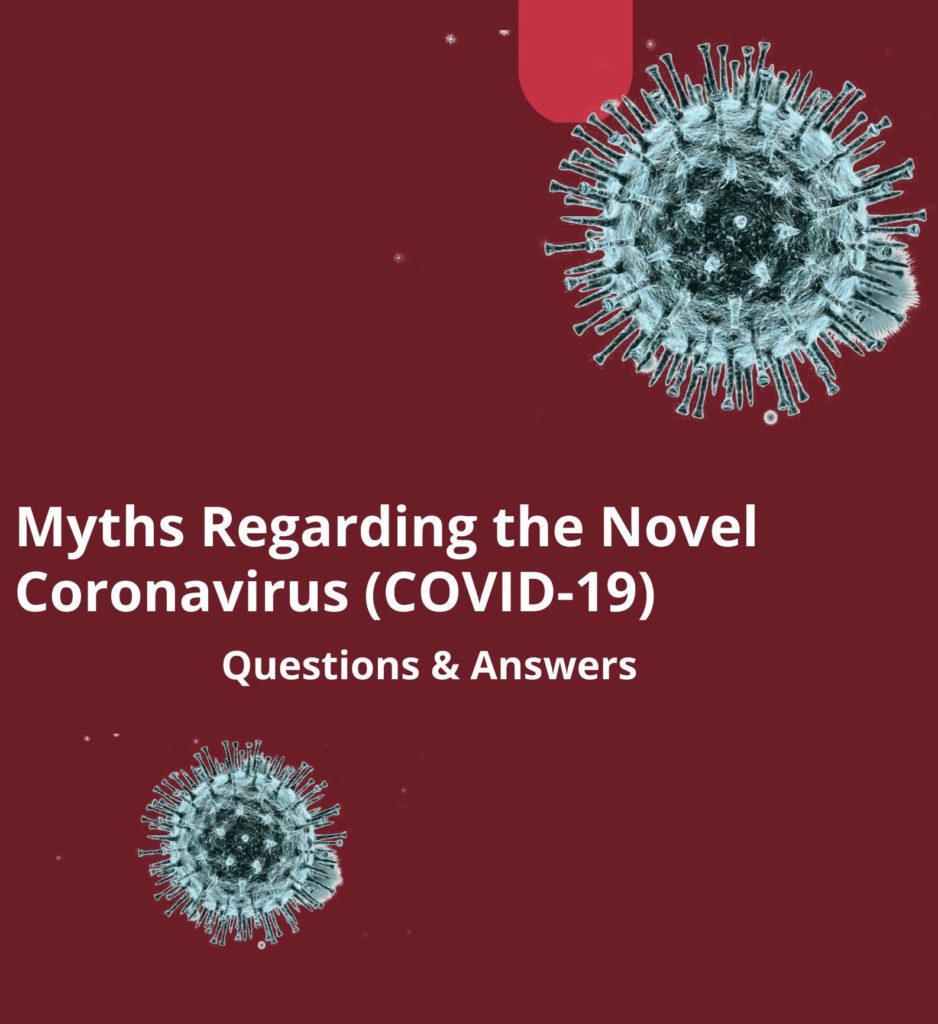Incorrect Recommendations or Information Regarding the Novel Coronavirus (COVID-19)
Now-a-days the several recommendations and information regarding the (COVID-19) coronavirus are being shared on social media including Facebook, WhatsApp, twitters, and others. A wide majority of these tips and information is based on false or unsubstantiated claims.
The Geneva health authorities have provided the list of the incorrect recommendations or information regarding the (COVID-19) coronavirus being shared. Here are the key list of these incorrect recommendations or information as follows:
Does a person without symptoms carrying the coronavirus is contagious?
According to the studies, people without symptoms are not the potential sources of contamination. The coronavirus infection spread mainly through respiratory droplets expelled by the people who cough. Sick people are most contagious when they are most symptomatic. There is no sufficient studies regarding the whether asymptomatic people infected with the new coronavirus are contagious or how long they are contagious before symptoms appear.
Will the virus die if exposed to temperatures of 26-27°C?
There are not any studies confirming that the climate or temperatures have an impact on the spread of coronavirus. Thus, it is impossible to say that spring or summer heat can literally kill a virus.
Does hot liquid neutralizes the virus?
It has been observed that drinking hot water or the frequency of water consumption has no effect on the coronavirus. It is not necessary to change the temperature of the water you drink. It is essential to drink water not just for killing the coronavirus.
Can coronavirus survive on inert surfaces for about 6 to 12 hours?
Various studies have shown that the coronaviruses can exist on surfaces from up to a few hours to several days depending on the different parameters such as surface type, temperature or humidity.
Does eating more ginger, garlic, pepper, etc. protects against coronavirus?
Eating ginger, garlic, pepper does not fight specifically against the coronavirus. These foods have virtues for the body.
One must hold your breath to find out if you are infected with the coronavirus. Holding one’s breath for more than 10 seconds without coughing, discomfort, congestion or tightness would prove that there is no fibrosis in the lungs and therefore no infection.
There is no scientific evidence to support this assertion. Only a laboratory test can confirm infection with the new coronavirus.
Does drinking water and gargling cure COVID-19?
Saltwater is effective in relieving the sore throat. People are advised to drink water to stay hydrated when they are sick with the flu or the novel coronavirus. Drinking does not eliminate the coronavirus in any way.
Dogs and cats can transmit the coronavirus?
There are not any studies demonstrating the transmission of the coronavirus through the dogs and cats.
Rinsing the nose regularly protects against coronavirus infection?
There are not any studies demonstrating the rinsing your nose with a saline solution protects against coronavirus infection.
Does coronavirus only affect vulnerable people?
Coronavirus can affect the people of any age-group. Elderly people and people with pre-existing conditions such as asthma, diabetes, chronic lung disease, cancer, heart disease, etc are at high risk of developing the coronavirus infection. Hence, people are advised to take measures to protect themselves from the virus through social distance of at least 2 meters, regular and meticulous hand washing, good respiratory hygiene, etc.
Are antibiotics effective in preventing and treating coronavirus infection?
Antibiotics do not work against viruses but are effective against only bacteria. The antibiotics should not be used as a means of prevention or treatment. If one is hospitalized for infection with CoV-2-CASR then one can receive antibiotics as the bacterial co-infection is possible.
Can Chloroquine cures COVID-19?
There is no drug effective for the treatment of COVID-19. Some treatments are tested in numerous research protocols worldwide. Hence, Chloroquine treatment is currently reserved for patients in hospital settings or as part of a research protocol.
Are fabric masks an efficient substitute for surgical masks?
Fabric masks not efficient substitutes for surgical masks. In fact, surgical masks are the only masks where there is scientific data regarding filtration efficiency and airtightness. Fabric masks or other hand-made masks do not provide the bearer with any proven protection against coronavirus. Further, it is recommended that medical masks must be worn only by health staff members. FFP2 masks are required only if the presence of COVID-19 is suspected in a patient and if a high level of aerosol formation is expected during a medical procedure. Healthy people should not wear medical masks or surgical masks in the public. Healthy people must prefer fabric masks in the public.

